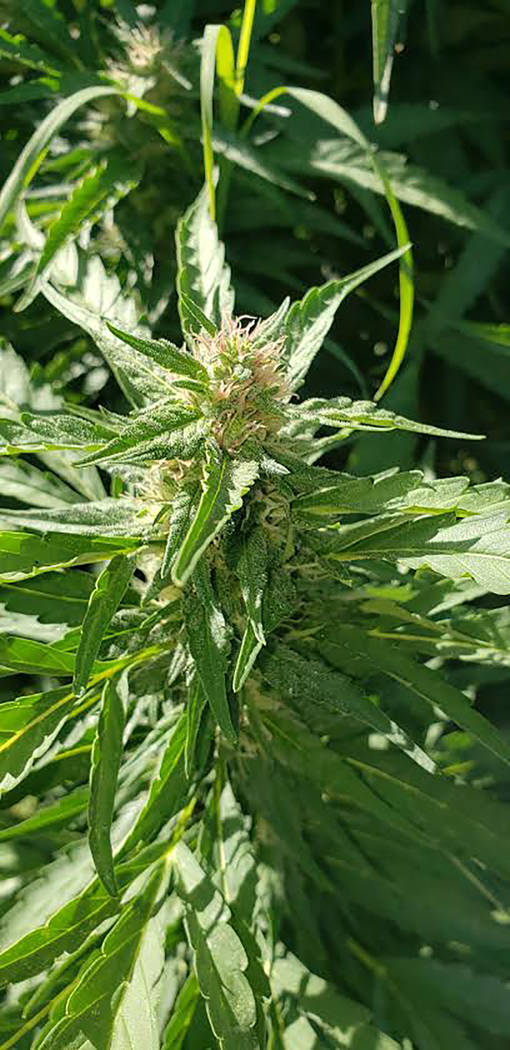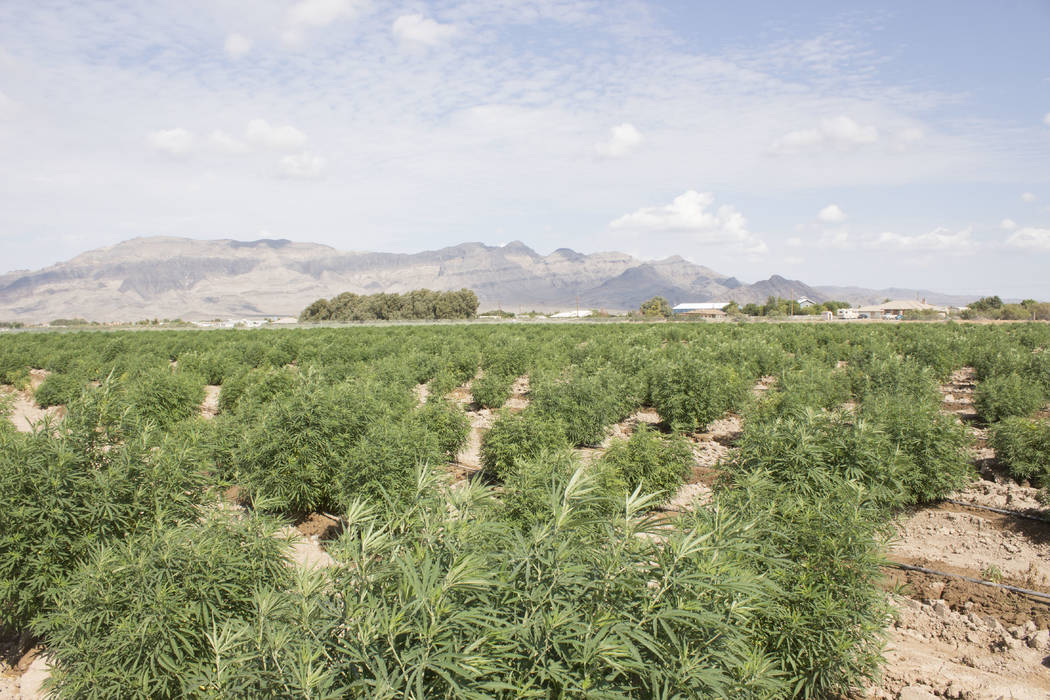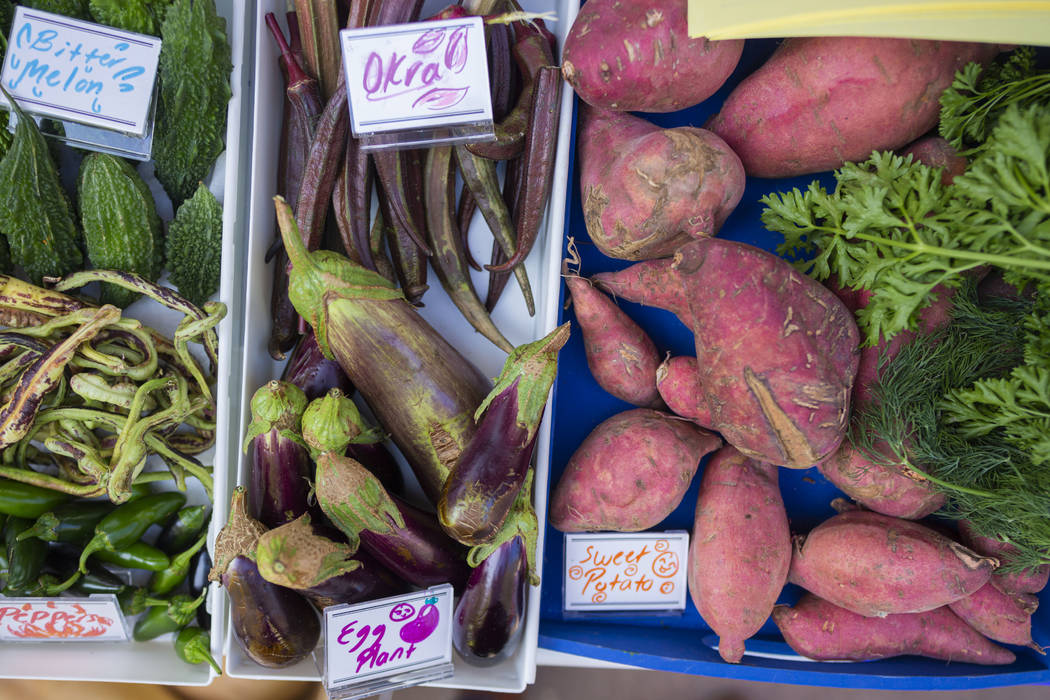Commercial crops bill passes with protection for small-scale growers
Farmers market growers can exhale a sigh of relief, the production of crops on Pahrump area residential lots for commercial purposes has been granted a certain level of protection following the Nye County Commission’s approval of some changes to Nye County Code Title 17.
Those considering establishing a new hemp grow, however, will have some new restrictions to contend with.
Nye County Commission Chairman John Koenig told the public during the Dec. 17 meeting that from the beginning, the main apprehension connected to the proposed code changes was centered on the impact to those who grow crops on a small scale and participate in farmers markets or sell on a small scale from their homes.
As originally proposed, the code changes would have banned such activity for those living on Rural Estates 1 and 2, or RE-1 and RE-2 zoned parcels, as well as Suburban Estates lots, known as SE zoning. However, those concerns were assuaged with the recommendation of a simple definition change that would allow for “subsistence farming.”
Nye County Planning Director Brett Waggoner jumped in to state, “Yes, the chairman is correct. When this came before the RPC (Pahrump Regional Planning Commission) that was one of the biggest concerns and the intent of the change was not at all meant to address the small guy who’s growing a garden for the sustainability of his family.”
Waggoner said that as most are aware, the proposed changes were prompted by the uptick in hemp growing, with hemp farms popping up in residential neighborhoods, much to the irritation of their neighbors. Additionally, water became a cause of concern, with Waggoner explaining, “When it’s on an RE-1 or RE-2 property, that’s typically meant to be a single-family type residence. Those will usually have an existing domestic well that’s not an agricultural well, that’s not meant to support any type of commercial operation whatsoever, given that there are no water rights there to accommodate that. So this was drafted to address that.”
Taking to heart the comments of those concerned for farmers market-type growers, Waggoner said the planning department came up with some definitions and minor changes that would alleviate any impact on such growers.
The proposed new definition of “subsistence farming” reads, “The activity of growing crops or raising livestock for food or household use, but not to provide a sole source of income. Income provided by subsistence farming not to exceed $20,000 per year.”
Another definition addition would be for “commercial farming”, which would consist of producing crops for a sole source of profit exceeding $20,000 per year.
If the commission were to adopt the code with those references that afternoon, Waggoner said he would bring a separate bill back before the board to formally change the definitions section of the code as well.
Nye County Commissioner Lorinda Wichman appeared to have some reservations on the definitions as proposed, asking, “You’re going to have to monitor what people are earning?”
Waggoner replied, “Not necessarily. I think it’s going to be pretty easy. If somebody is growing on an acre and there is no house, it’s not a garden at that point, it’s a crop.”
Wichman said she liked the “subsistence farming” part of the bill but she was still wary of the need for enforcement, remarking, “You might want to be cautious about taking it too far or you’re going to have to find some more code enforcement people.”
Nye County Commissioner Leo Blundo then asked why the county code couldn’t call for a Conditional Use Permit or Special Use Permit for all hemp grows, but Waggoner said that wouldn’t be allowed because it would be considered a form of discrimination against one specific crop.
Blundo didn’t seem to understand how the changes before the board were any different from requiring a Conditional Use Permit. “Let’s be frank about what we want to do,” Blundo asserted. “We don’t want hemp in residential areas. I believe we did spot zoning, I don’t agree with that… I think these are great ideas but are we putting the cart before the horse?”
Waggoner said the water concerns themselves were enough to make the changes nondiscriminatory, because the new definitions would bar the sale of more than $20,000 of any crops, not just hemp, on RE-1, RE-2 and SE lots. “This did start as a hemp issue. It’s evolved,” Waggoner stated.
Nye County Commissioner Debra Strickland interjected to add, “It’s become much more than a hemp issue, it’s become a water issue… I realize that people became upset by the hemp but the best thing we can do is control the water use…”
Going back to the remainder of his suggested alterations, Waggoner continued by detailing that those who do want to have a commercial crops operation on a RE-1 or RE-2 property could apply for a Conditional Use Permit. Additionally, the grandfather clause would apply to those crop production operations currently in existence.
Circling once more to the hemp issue, Nye County Commissioner Donna Cox asked, “What does this do for us or against us where the hemp is concerned? Are we trying to shut everybody down and do away with it?”
Koenig responded, “On one and two acres, yeah,” adding that hemp would be permissible on most parcels five acres or larger in size.
Wichman made a motion to adopt the bill with the amendments as proposed by Waggoner and the motion passed 3-2, with commissioners Cox and Blundo against.
Contact reporter Robin Hebrock at rhebrock@pvtimes.com


















